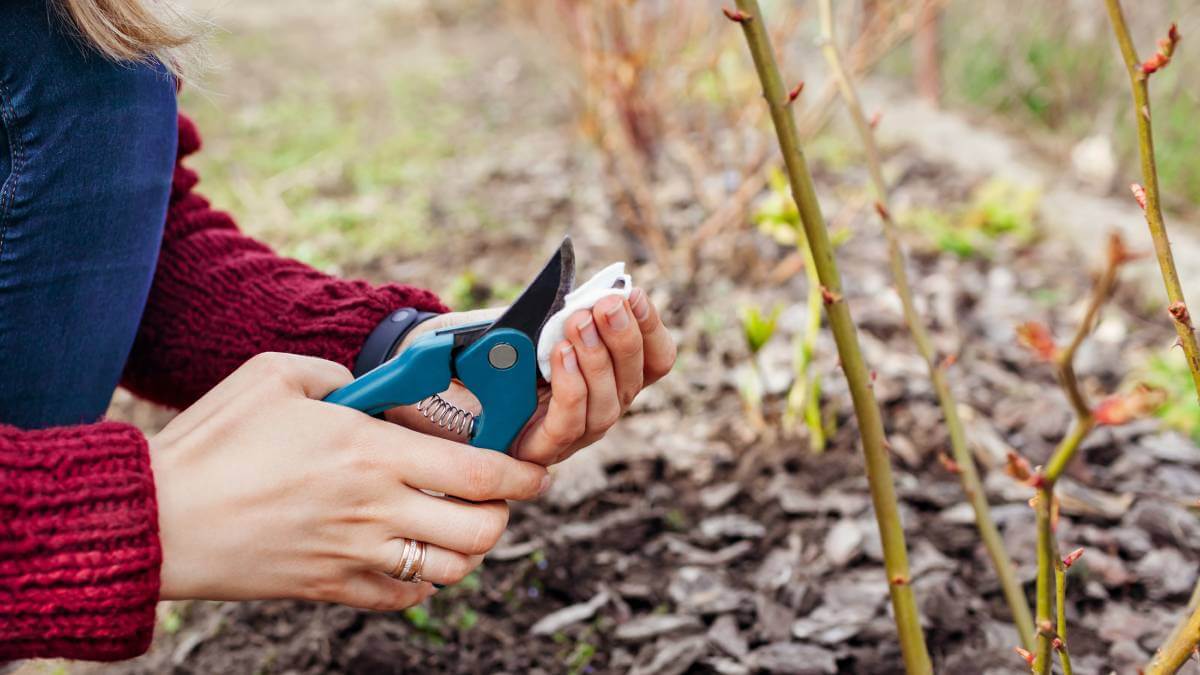As the days get shorter and temperatures drop, it may seem as though there’s not much left to do in the garden between now and next spring. But there’s probably one last job to be done: clean your tools.
Royal Horticultural Society chief horticulturist Guy Barter explains that it may not be the most glamorous of jobs, but is vital to the health of plants and wildlife in the garden.
“Many people, including seasoned gardeners, don’t realise that an autumn clean and tidy-up in the garden is as important as a spring clean in your home,” says Mr Barter. “By taking care of a few simple jobs now, you can give yourself a head start for the next growing season, and ensure garden plants have the conditions they need to thrive throughout the winter.”
Mr Barter shares the cleaning and tidying jobs you should be doing now.
Sheds and tools
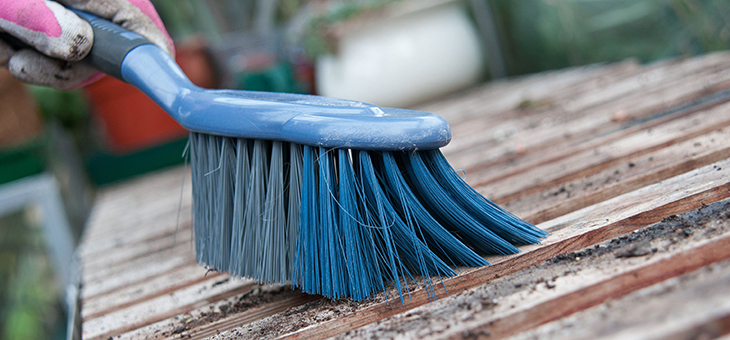
“Get rid of spores and pest eggs by cleansing sheds and hothouses with hot detergent and garden disinfectant, remembering to scrub over concrete floors and replace soiled gravel,” he advises.
Light levels are lower in winter and grubby glass will exclude much light if not washed clean, not forgetting to remove moss and algae from beneath overlapping panes. Caulk any leaks with clear silicone mastic and replace any cracked panes at the same time.
“Compost any unwanted plant material and eradicate weeds, as weeds are reservoirs of pests and diseases,” he adds.
Get oiling
Now is a good time to oil any wooden handles on your tools as keeping them in good shape should extend their lifespan. You may even avoid a splinter or two.
Scrub them with a hot, soapy brush and rinse well. When they are dry, use sandpaper on any rough or ‘splintering’ surfaces.
Excellent oils for your tools include linseed, coconut or walnut oil. Soak a cloth in your chosen oil and slather it on. Wait 10 minutes or so and then buff it down with a clean cloth. You can do a few coats, but you probably don’t need more than three.
A quick wipe over any metal parts while you are there won’t hurt either and could deter rust, even for a short while
Clean your tools
Stainless steel tools merely need a scrape clean, Mr Barter explains, but those made of ordinary steel may rust unless cleaned well and oiled.
Lawnmowers and power tools may also rust in a damp shed unless exposed metal is oiled or paint retouched – you might as well sharpen them and change the oil now that there’s less to do in the garden.
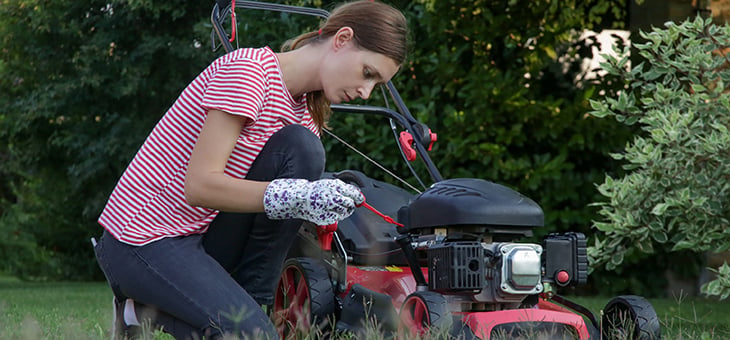
Alternatively, take them to a garden machinery workshop for professional sharpening and servicing.
This is also a good time to clean and store plastic pots, seed trays and modules so they are ready for reuse next year.
Winter protection
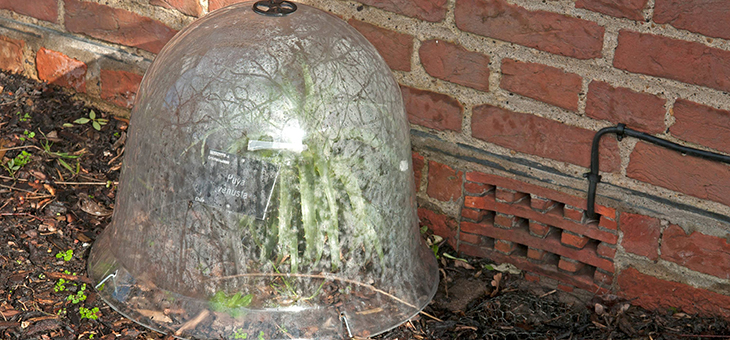
“Unheated greenhouses are unlikely to exclude frost, so the tenderest plants, aeoniums and tradescantia, say, are best brought indoors to a suitable windowsill or ideally a conservatory,” he advises.
“Pruned and well-wrapped dahlias and canna will survive in a shed or even left in well-drained ground in milder regions, ideally under a 9cm layer of bark mulch.
However, if you’re thinking about adding an extra layer of protection to your greenhouse, Mr Barter warns: “Insulating greenhouses with bubble wrap cuts out much light and is best kept to the bare minimum – this also reduces plastic waste.”
Houseplants
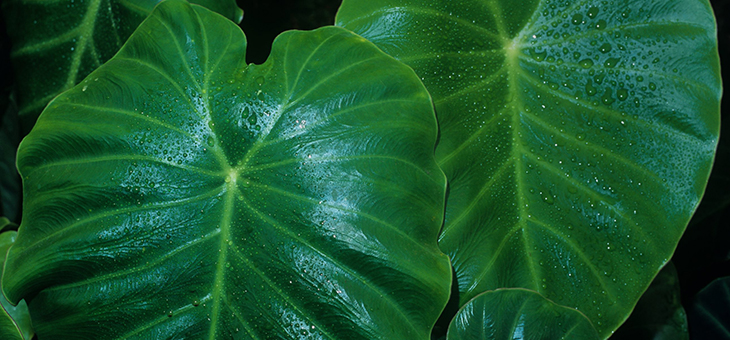
With light levels lower at this time of year, taking the time to clean accumulated dust from the leaves of houseplants will help them take up all the available light to stay healthy throughout the winter.
Mr Barter suggests taking houseplants outside on a mild rainy day and letting the rain wash them clean, perhaps applying some ‘leaf shine’ when they return indoors.
“Go easy on watering through the winter and hold off on feeding and repotting until spring,” Mr Barter suggests. Plants that have been sheltering from the scorching summer heat can return to their winter position on a windowsill.
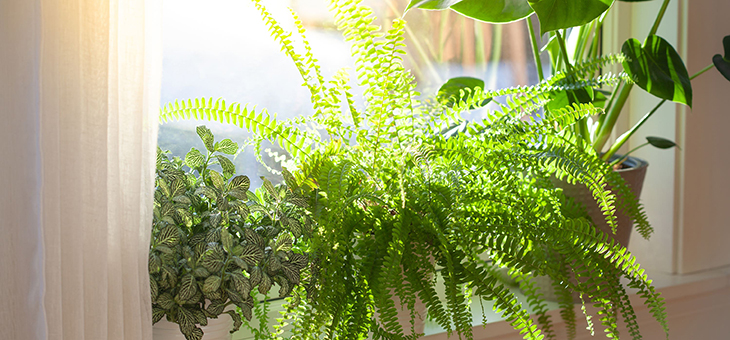
Consider a low energy LED growing light in dark homes with limited suitable windowsill space, to give your houseplants a boost during the winter.
Pick off any dead leaves now and take the opportunity to rub out pests, too. However, if your houseplants show symptoms of mealybug, this is virtually incurable and infested plants are best replaced.
Have you put away your gardening gear for winter? Do you do a garden autumn clean-up?
Read more: What can go in the compost bin?
– With PA

